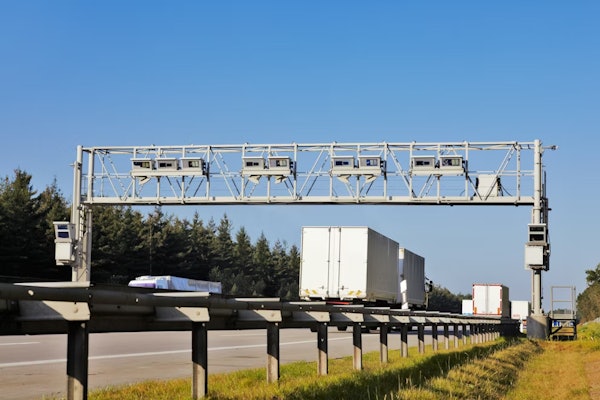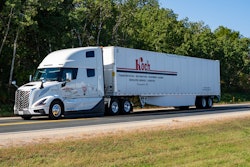For trucking companies and their drivers, mandatory electronic onboard recorders represent loss. Perhaps it’s loss of privacy or productivity. Considering the costs, maybe it’s a loss of profits. Regardless, the trucking industry isn’t yet ready to embrace recorders. Rather, carriers seem to be working through a classic grief process.
Officially, the trucking industry is stuck in the first stage – denial. The standard line is something like this: “Only a tiny fraction of the industry cheats on hours-of-service compliance, so recorders are a solution looking for a problem.” It remains politically incorrect to concede noncompliance as a reality. But denial is all for show. Wanton disregard of the rules may not be rampant, but nobody sincerely believes cheating is nonexistent.
The next stage of grief is anger, and there’s plenty of it. Carriers, drivers and associations have filed more than 300 comments in response to the Federal Motor Carrier Safety Administration’s advance notice of proposed rulemaking, and most oppose mandatory recorders. The Owner-Operator Independent Drivers Association said it objects to the “possible imposition of a costly and personally intrusive device that would do nothing to address the problem it promises to fix.” Nor would recorders help drivers resist the pressure from carriers, brokers and shippers to meet unreasonable schedules, OOIDA said. And then there’s the president of a small trucking operation who equated mandatory recorders with “an act of disobedience to God.”
The next stage, bargaining, follows two basic themes. First is the hint that electronic devices might be more acceptable if the federal government would agree to a series of protections against public disclosure of the data collected. The second is a plea that if FMCSA is determined to mandate onboard recorders, it does so only for long-haul carriers. ATA chooses its words carefully on this score, suggesting that LTL carriers operate under tightly controlled conditions, so recorders aren’t needed. ATA leaves unspoken which segments might see improved compliance, but others are more explicit.
Depression is evident in a discussion of costs. Typical are the comments of Ralph Meyers Trucking, a 13-truck carrier based in Allendale, Mich. “We have been in business 65 years,” the company said. “If the FMCSA requires small carriers like us to have electronic onboard recorders for all trucks, it could put us out of business.” Based on estimates Ralph Meyers received from paperless log vendors, the ongoing costs would be $25,000 after startup costs of $75,000. But the carrier says it generates only $33,800 in profit each year. “Where will we get the income to pay for this technology? How are we going to survive?”
Other than the growing number of carriers that already use electronic recorders voluntarily, few fleet owners are yet at the final stage, acceptance. FMCSA, however, appears to be pushing carriers down that path. In a visit last month to ceremonially sign Werner Enterprises’ exemption from paperless logs based on GPS, Adminstrator Annette Sandberg declared that “Werner’s use of this technology couldn’t come at a better time. We currently are reviewing public comments on how motor carriers use a variety of electronic onboard recording systems, and we are evaluating their costs and benefits. Werner has shown us how carriers can apply technology effectively and improve an important component in the effort to reduce truck-related crashes, injuries and fatalities.”
The trucking industry has the financial and political muscle to tie a mandate up in Congress, the courts and the Department of Transportation for years. But those resources would be better used working for a mandate the industry can live with. One way or another, some type of electronic enforcement of drivers’ hours-of-service compliance is inevitable. Work through the grief.








